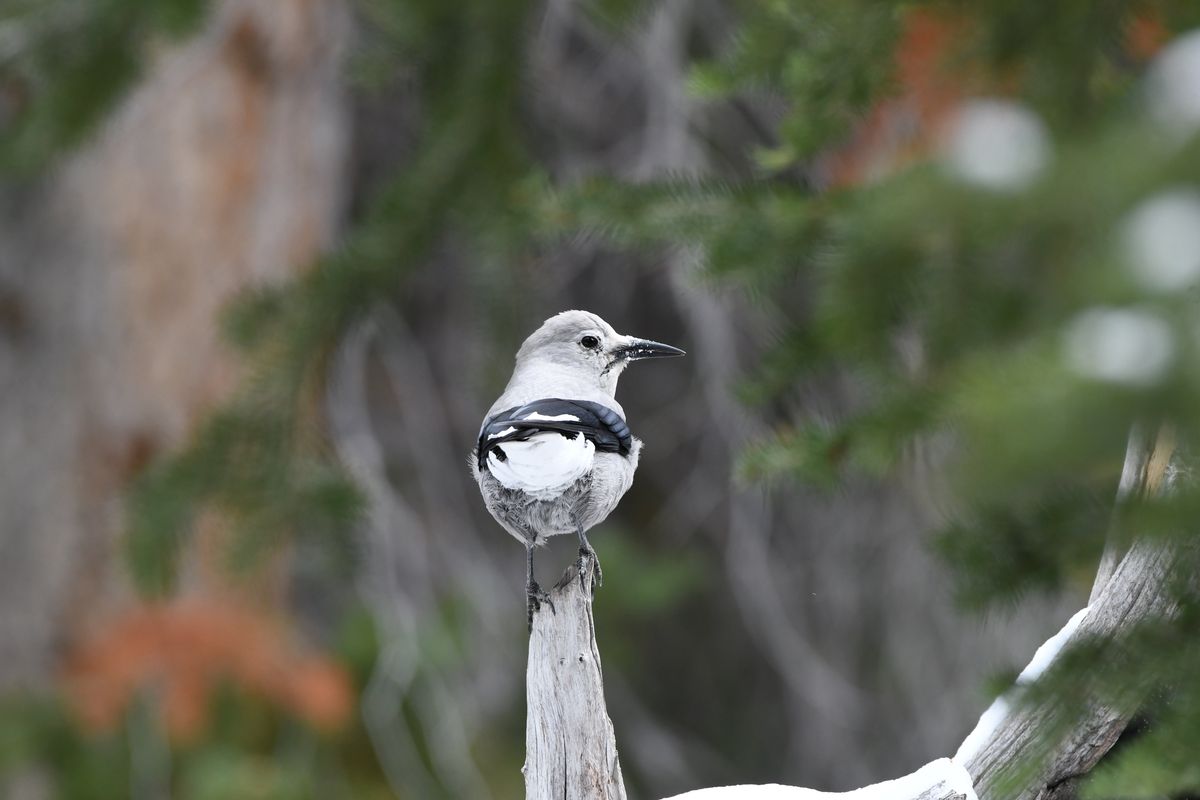Some Inland Northwest bird species to be renamed in light of racism from historic namesakes

Every spring, a small songbird with a brilliant black and yellow face visits the Inland Northwest.
Many bird watchers consider it a treat to catch even a glimpse of a Townsend’s warbler through their binoculars as it swiftly bounces behind pine or tamarack branches.
But the name isn’t great for such a flamboyantly beautiful bird, some would argue. They’ll be glad to know the Townsend’s warbler probably won’t be called that much longer.
The American Ornithological Society on Wednesday announced it will rename 80 or so birds named after people. The Townsend’s warbler and other species will receive new names that describe their plumage, habits or home ranges.
The decision to rename dozens of birds came after years of debate. Many birders have argued that species shouldn’t be named after long-dead and problematic biologists.
John James Audubon, arguably America’s most famous ornithologist, enslaved Black people. John Kirk Townsend, namesake of the Townsend’s warbler and Townsend’s solitaire, collected skulls stolen from Native American graves and argued Natives were racially inferior to whites.
Numerous species found in the Inland Northwest, such as the Steller’s jay, Brewer’s blackbird and Wilson’s warbler, will likely receive new names in the coming years. The American Ornithological Society intends to focus on species named after enslavers, white supremacists and robbers of Indigenous graves.
Naming debates have become common throughout the U.S. in recent years, and they’re frequently contentious. For instance, many schools in the south still bear the name of Confederate general Robert E. Lee.
But renaming discussions aren’t new in the birding world. For instance, the duck once known by the insensitive name “oldsquaw,” has since been renamed the “long-tailed duck.”
Many bird watchers agree a bird’s name should reveal something about its appearance, home range or characteristics. For instance, the Townsend’s warbler’s East Coast counterpart is known as the black-throated green warbler.
But some question whether renaming dozens of species is a good idea.
Ralph Kerr, a former president of the Coeur d’Alene Audubon Society, said he thinks the American Ornithological Society “ought to just leave them alone.”
“We can’t rewrite history,” Kerr said. “I’m probably an old-fashioned guy, but I don’t see any merit in it.”
Others are more supportive of the idea.
Dr. Marcie Logsdon, an avian veterinarian at Washington State University, said it’s a good idea to stop “naming these things after people.”
Biologists from the past probably don’t deserve to have birds named after them simply because they were the first white person to see or describe a particular species, Logsdon said.
“Those birds were there long before them,” she said.
Joseph Haydock, a behavioral ecologist at Gonzaga University, said he’s also in favor of new names. Renaming birds won’t erase the history of past ornithologists, he said.
“There are other ways to remember history,” Haydock said.
Spokane Audubon Society President Alan McCoy said he sees positives and negatives to renaming birds.
“Do you vilify a person in history who did make contributions to ornithology, yet had other qualities that were less flattering or outright cruel? I don’t know,” McCoy said.
He noted that roughly 50% of Spokane Audubon Society members believe they should shed all connections to Audubon. Some Audubon societies, including Seattle’s, have adopted new names in recent years.
McCoy said he believes birdwatching organizations should pay more attention to increasing diversity within their organizations than renaming birds. The world needs more birders of color, he said.
“We don’t have enough Black birders in Spokane,” McCoy said. “I can’t name one.”
Logsdon said she understands that longtime birders and biologists will need time to adjust to new names.
“I do understand that change is hard,” she said. “It’s change for a good reason.”